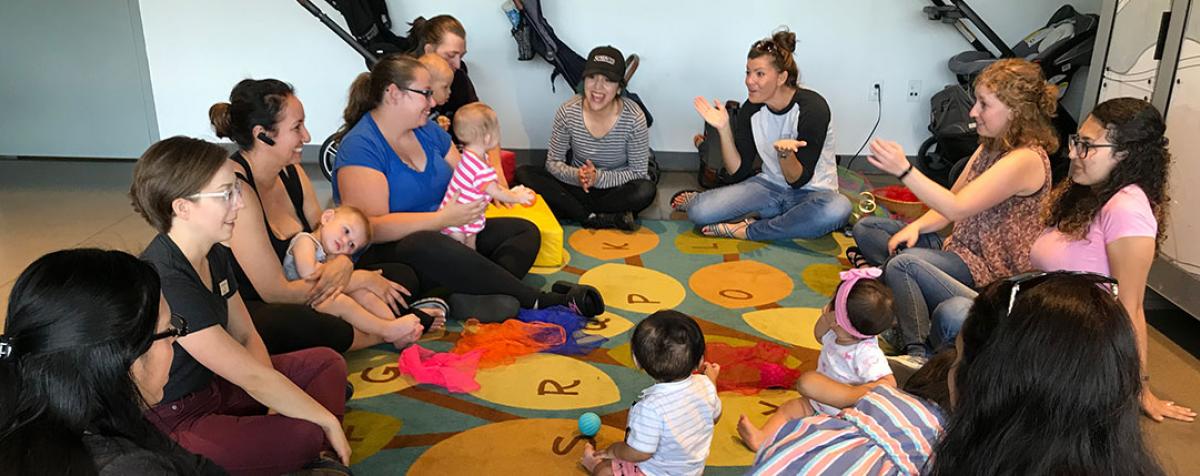WePlay Denver
In partnership with the Children’s Museum of Denver at Marsico Campus, faculty and students from the Perinatal to Five Mental Health (P-5) and Latinx Mental Health specialties within the Graduate School of Professional Psychology at the University of Denver are piloting a new WePlay program in our community.
The program structure for WePlay Denver is based upon a similar program successfully piloted by the Chicago Children’s Museum in 2017. Before launching the program, we involved local parents in planning for WePlay Denver via focus groups. We asked about their knowledge and interests in infant and early childhood play practices as well as overall mental health and well-being for parents and their young children. We conducted focus groups with English- and Spanish-speaking cohorts, noting similarities and differences between the cohorts, and adjusting the resulting curriculum according to each cohorts’ input and needs. Based on the parents’ input, GSPP faculty and Museum education staff created curricula that emphasizes the value of play and responsive interactions in early childhood, while offering parents support, resources and a network of peers and professionals to lean on and learn with.
Through the six-session program, we welcome cohorts of 10 caregivers and their infants from the community, as well as those who are currently receiving services with our partner organizations, MotherWise Colorado and The Caring for You and Baby (CUB) Clinic, to the Museum for play-based parent-infant groups in a warm and welcoming environment. We conduct WePlay Denver groups in both English and Spanish according to the knowledge gained from the focus groups. Through culturally-responsive support and facilitation, based in best practices in child development and mental health, we are creating a community where parents feel connected and can find respite from the various stressors of parenting. As a result, parents feel motivated and equipped to better connect with and support their children, leading to enhanced outcomes for both adults and children.

